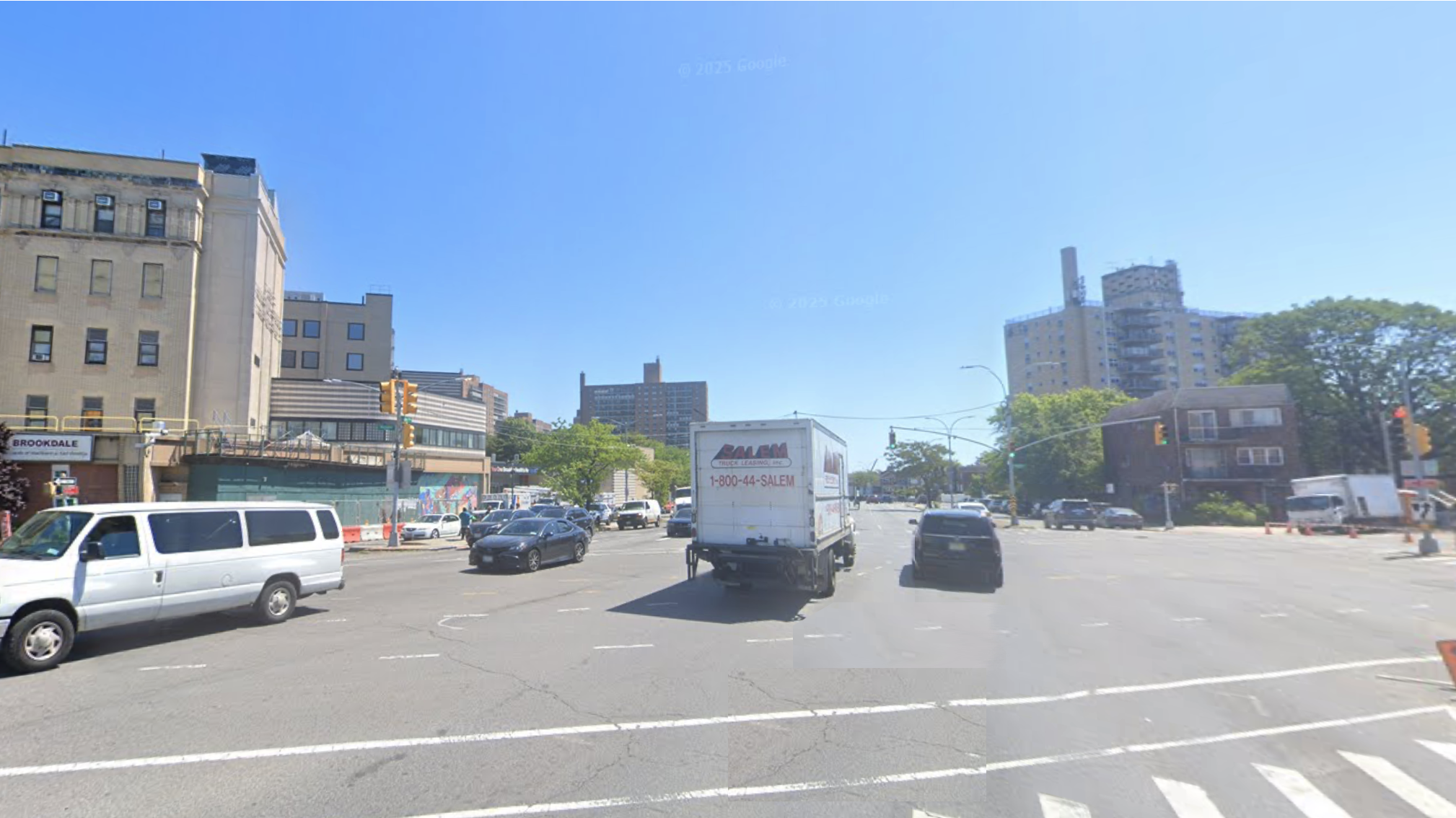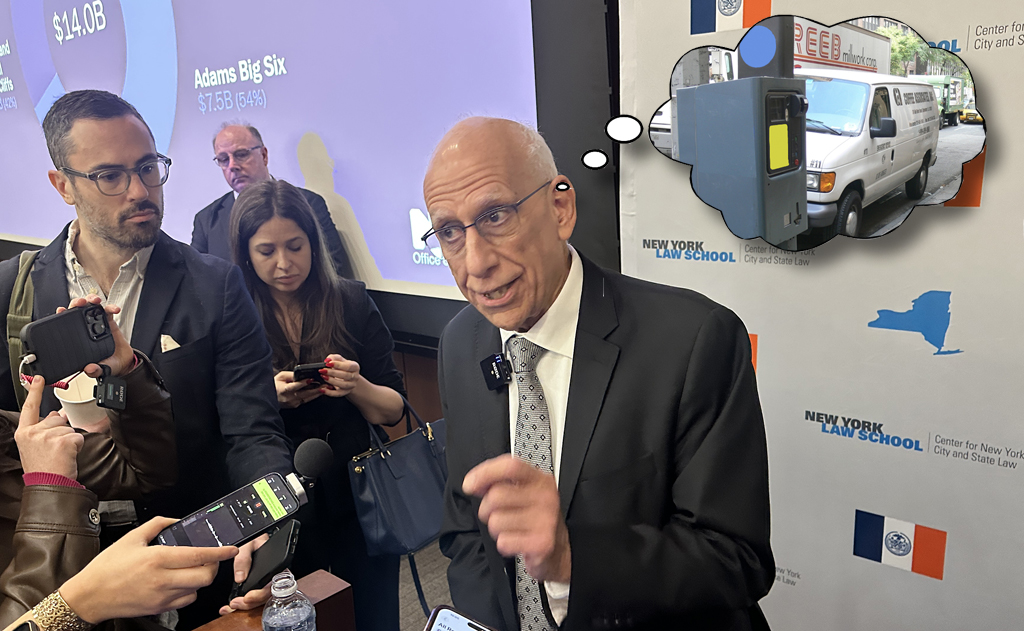 NEPA oversight should prevent the Garden State Parkway from being widened using stimulus funds.
NEPA oversight should prevent the Garden State Parkway from being widened using stimulus funds.The final draft of the Senate's economic recovery bill will require all projects funded by the stimulus to
have approval under the National Environmental Protection
Act, or NEPA. Sponsored by Barbara Boxer, the NEPA amendment (full text after the jump) was adopted late Thursday following
Republican attempts to exempt highway projects from environmental oversight.
For advocates of green transportation, NEPA protection will help deter the construction of additional road capacity, but it does come with a potential downside.
The provision should assist the Tri-State Transportation Campaign, for example, in its fight against the widening of the Garden State Parkway, a project on New
Jersey's stimulus wish list. The state has tried very hard to avoid
federal oversight for this massive highway expansion project, going so far as to attempt funding it completely with toll revenue. Paying for the added lanes with stimulus cash should only be possible if the project can skirt NEPA.
While many are breathing a sigh of relief that the Senate fended off an end run around NEPA reviews, the application of 1970s-era environmental legislation could produce unintended consequences for deserving projects. Similar laws have been invoked to delay the implementation of San Francisco's bicycle network for three years and to impede car-free parks in New York.
The debate over NEPA provisions in the stimulus began when Sen. John Barrasso (R-WY),
backed by the U.S. Chamber of Commerce and at least 20 other business groups, pushed an alternative amendment that would have allowed any project receiving stimulus funds to get a waiver from NEPA if the environmental review
couldn't be completed within 270 days. The average NEPA review for a
highway project lasts more than four years, according to the American Association of State Highway
and Transportation Officials.
The idea that environmental protections should be scrapped to stimulate the
economy isn't new. Republicans have long argued that NEPA does more to
stall the economy than protect the environment. Last month, California
Governor Arnold Schwarzenegger revived this line of thinking when he wrote to the Obama administration about
the stimulus package. Schwarzenegger
argued then that streamlining NEPA and shortening the timeline for other
environmental reviews was key to getting the economy moving again.
With so much emphasis placed on getting projects moving as
quickly as possible, Barrasso's proposal looked like it might pass. But Boxer, with the aid of many groups fighting the highway-addled amendment she pieced together with James Inhofe, argued that there were more than enough "shovel-ready"
projects on the table, clearing the way for the NEPA amendment.
Purpose:
To ensure the expeditious completion of National Environmental Policy Act
reviews under applicable law.
Insert at the
appropriate place:
Findings
The National
Environmental Policy Act protects public health, safety and environmental
quality: by ensuring transparency, accountability and public involvement in
federal actions and in the use of public funds;
When President
Nixon signed the National Environmental Policy Act into law on January 1, 1970,
he said that the Act provided the “direction” for the country to “regain a
productive harmony between man and nature”;
The National
Environmental Policy Act helps to provide an orderly process for considering
federal actions and funding decisions and prevents ligation and delay that would
otherwise be inevitable and existed prior to the establishment of the National
Environmental Policy Act.
Section 1
Adequate
resources within this bill must be devoted to ensuring that applicable
environmental reviews under the National Environmental Policy Act are completed
on an expeditious basis and that the shortest existing applicable process under
the National Environmental Policy Act shall be utilized.
The President
shall report to the Senate Environment and Public Works Committee and the House
Natural Resources Committee every 90 days following the date of enactment,
until September 30, 2011, on the status and progress of projects and activities
funded by this Act with respect to compliance with National Environmental
Policy Act requirements and documentation.





